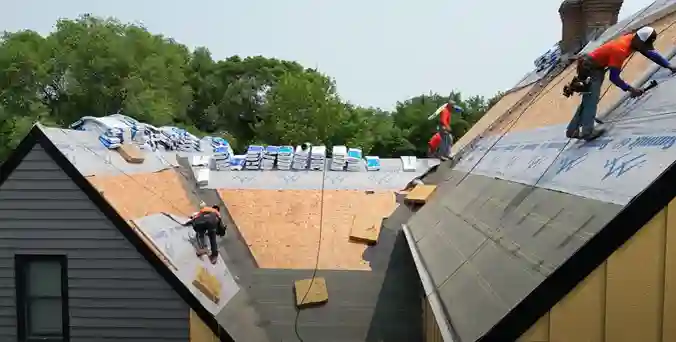Deep Dive into Resilient Roofing Solutions
As the climate continues to present new challenges, the importance of resilient roofing solutions has never been more evident. From extreme weather events to changing precipitation patterns, our roofs stand as the first line of defense for our homes and businesses.
In this blog post, we will take a comprehensive look at the world of resilient roofing solutions—exploring innovations, materials, and strategies designed to withstand the toughest of storms.
On this page
(Click for a shortcut)
The current landscape
To set the stage, let’s examine some alarming statistics. According to the recent climate reports, the frequency and intensity of storms have increased significantly over the past decade. In 2023 alone, there was a 25% rise in severe weather events compared to the previous year, affecting millions of properties globally. As a result, the demand for tough and resilient roofing solutions has surged, prompting the construction industry to adapt and innovate.

Innovations in resilient roofing
Modern challenges call for modern solutions. Resilient roofing goes beyond traditional materials and methods, incorporating cutting-edge technologies and design principles. Impact-resilient shingles, reinforced underlayment, and advanced sealant systems are just a few innovations that are reshaping the roofing landscape. These solutions not only enhance durability but also contribute to the overall sustainability of buildings.
Impact-resistant shingles
Impact-resistant shingles are typically made from durable materials such as asphalt, fiberglass, or a combination of both. Some may have a rubber-like polymer added for extra flexibility and higher impact resistance.
Reinforced underlayment
The function of underlayment is to exist as an additional barrier against water infiltration.
Many of the materials used in underlayment include asphalt saturated felt, rubberized asphalt, polyethylene, or polyester. The reinforcement is often added fiberglass or polyester fibers.

Advanced sealant systems
Sealants are important in preventing weather leaks by sealing gaps, joints, and seams in a roofing system.
They are designed to remain flexible over time with the ability to accommodate natural expansion and contraction of building materials due to temp changes. Actually, UV-resistant properties are incorporated into advanced sealants to prevent degradation from prolonged exposure to sunlight.
Materials matter
Resilience begins with the right materials. We’ll explore the characteristics of materials like impact-resistant asphalt, metal alloys, and synthetic membranes that are engineered to endure harsh weather conditions.
Understanding the science behind these materials empowers homeowners and builders to make informed decisions when selecting roofing options that can withstand the test of time.

Strategies for resilience
Beyond materials, the way a roof is designed and installed plays a crucial role in its ability to weather storms. From improved ventilation systems to strategic slope designs, there are various strategies that can enhance the resilience of a roof. We’ll delve into the importance of proper installation practices and how they contribute to the overall longevity and performance of a roofing system.
Conclusion
And there you have it, folks—a crash course in resilient roofing. In the face of climate challenges, resilient roofing solutions are not just a luxury but a necessity.
As we’ve explored in this deep dive, the combination of innovative materials, advanced technologies, and strategic design can create roofs that stand strong against the forces of nature. Investing in resilient roofing is not only an investment in the longevity of our homes and businesses but also a commitment to a more sustainable and secure future.
Let’s weather the storm together with roofs that stand tall and resilient against whatever nature throws our way.




















